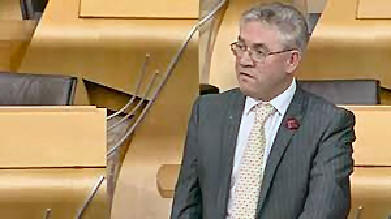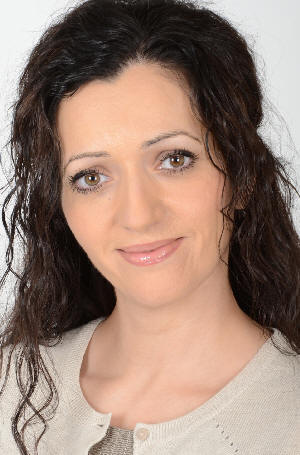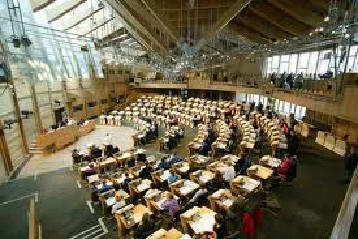|
GERS figures
Have
you ever heard of the GERS figures? These are the Government Expenditure
and Revenue Scotland figures produced annually by statistical experts
for the Westminster government. The people who produce them are at an
arm’s length from the Treasury and so are not impacted by the financial
policies or political interests of the day.
Which
is where it gets interesting because the fiscal position over the past
five years is “stronger than the UK” by £1,600 per head:
http://tinyurl.com/obasdzk
Tax
revenues in Scotland generated in 2012-13 were £800 higher per head than
in the UK. That means that for every one of the last 33 years, tax
receipts per person have been higher in Scotland than in the UK.
The
updated research shows that including North Sea oil and gas output,
Scotland’s GDP per capita in 2012 was 11 per cent above that of the UK.
I know
it’s statistics and it may all sound a bit dull, but it’s still more
evidence that Scotland will thrive as an independent country,
unrestrained by the political priorities of London and the south-east of
England.

Kenneth Gibson MSP,
convener of the Scottish Parliament Finance Committee
As my
colleague, Kenneth Gibson, made clear: “The latest GERS figures are very
much a tale of two Governments and the priority they give to investment
for the future.
“While Scotland has invested in roads and
railways, hospitals and housing – all of which are to the long-term
benefit of people in Scotland – Westminster has slashed its capital
spending.
“With a Yes vote this year, our finances
will be used to benefit people in Scotland rather than the Treasury in
Westminster.”
The
European elections
May’s elections to the
European Parliament are especially important to Scotland because the
results will be perceived as an indicator of how the referendum is
likely to turn out in September. That might be a false reading but it is
likely to be the media’s pick-up point.
So it was heartening and
encouraging to see a poll commissioned from ComRes by The Independent on
Sunday and the Sunday Mirror that reveals 39 per cent of Scots who
intend to vote will back the SNP for Europe. See the poll here:
http://tinyurl.com/orxcp3y
That is great news. We
currently have two SNP MEPs, Ian Hudgton and Alyn Smith, and are hoping
to win a third seat with our leading candidate, Tasmina Ahmed-Sheikh,
who has been making quite an impact around the country:
www.tasmina.eu
On this poll, Tasmina
would certainly secure that seat and that’s not just good for her, it’s
good for Scotland. An Asian Glasgow lawyer and avid pursuer of both
human and women’s rights, she will be able to add to the SNP impact in
Europe as we move towards the Yes vote.

Tasmina Ahmed-Sheikh SNP MEP candidate
The European elections
are more important than ever now because Labour leader, Ed Milband, has
become the latest leader to support the idea of an in/out UK referendum
on EU membership.
As you know, I am
convener of the Scottish Parliament’s European and external Relations
Committee. The fact that Ed Miliband has felt it necessary to back the
idea of a referendum that could rip the UK out of Europe says it all –
the Westminster parties are dancing to UKIP’s tune.
And given that today’s
poll shows UKIP in the lead for Europe with 30 per cent of the vote –
tellingly, just 6 per cent in Scotland – with Labour at just 19 per
cent, I can see why Mr. Miliband is extremely worried.
Only a Yes vote this
September will secure Scotland’s place as an independent member state in
Europe. Then we will take our rightful seat at the EU’s top table and
Scotland’s voice will be heard.
Childcare
Transformation
I wrote last week of the
sad passing of Professor Ailsa McKay who did so much work in terms of
supporting and lobbying for gender equality in Scotland.
In fact, she played a
major part in pushing transformational childcare up the government
agenda. She was a driver behind the horseshoe shape of the Scottish
debating chamber – less confrontational than the head-on Westminster
style - of family-friendly working hours and of a crèche.

The horseshoe shaped Debating Chamber of the Scottish Parliament
We had a debate about the
women of Scotland last week that picked up on a range of themes about
welfare cuts, barriers in some areas of employment and public life, the
excellent lobbying agencies that determinedly and tenaciously work to
built greater gender equality.
You can read the full
debate here:
http://tinyurl.com/nkdjdqa
For me, Ailsa McKay’s
conviction that women aren’t some sort of add on that you stir into the
mix, but are a fundamental ingredient in society in all its moods:
employment, family, health, science, technology, government, social
policy to list a few.
Childcare in the UK is very expensive. It works out, according to a
recent report by the Family and Childcare Trust, at about £7,500 a year.
That covers a two year old at nursery for 25 hours a week and a five
year old in an after-school club. The figure works out at slightly more
than the cost of the average mortgage that, according to official
statistics, costs £7,207 a year.
The
authors of the report say: “The childcare system isn’t working for
anyone.”
But
other countries manage to provide excellent facilities. Sweden, for
example, is often upheld as a great example. “How do they manage to
afford it?” people ask.
The
answer is not difficult. The Swedes afford it because the return on the
investment is far more women in work, generating more wealth and taxes
and thus paying for better public services like childcare.
This
Scottish Government’s way forward in tackling gender equality and
maximising the contribution of this nation’s incredibly talented,
ambitious and able women is to put them at the centre.
The Neurological
Alliance of Scotland
I sponsored a reception
and an information stand for the Neurological Alliance of Scotland last
week. This is an umbrella group of the different neurological conditions
that blight people’s lives – Motor Neuron Disease Parkinson’s, Epilepsy,
Multiple Sclerosis and several more rarer conditions.
There was an exhibition
of art work, quotes and stories on display, created by people with
different neurological conditions finding a creative outlet for their
experiences.
The event was primarily
designed as an awareness-raising exercise but it also gave people
affected a chance to find out more about one another. There have been
significant advances in this field but we struggle to find neurologists
even though one in five emergency hospital admissions involve
neurological conditions.
All of us there found the
real life story of one young woman profoundly moving and shocking. She
told the story herself; how she had felt a numbness in her feet, then
lower legs, gradually climbing up. She said it felt almost as if her
legs were floating. She visited her doctor who advised her it would
probably pass. At a hospital visit, she was told she was probably all
right but should watch out for the numbness increasing. Finally, she was
informed, with no preamble, that she had MS. She found no support in
those critical early days; no help to absorb the information and little
input into how she might be able to live with it.
The Scottish Government
is working hard, in consultation with the Neurological Alliance and
others, to find out exactly what needs to be done to ensure that
services better meet the needs of those affected. That includes social
and ongoing supportive care as well as meeting, as far as research
allows, the medical needs. |

